The Packard Bell McLaren C1 is a notebook computer for people who only need some parts of a notebook computer. It'll handle internet banking and Facebook (and other social media, sure), it'll perform basic office tasks (but Excel could be its downfall), and it'll play some (good old) games. As seriously budget machines go, this does the job.
-
Design
-
Display
-
Performance
-
Features
-
Value
Budget notebooks are becoming harder to find. Part of this is inflation pushing what used to be considered entry-level up above the R5,000 mark but what are you supposed to do if you don’t have quite that much money on hand? Packard Bell’s McLaren C1 reckons it has the answer to that. This notebook features a small form factor with a similarly compact price point but you should know what you’re buying before you put your cash down.
The first thing you should know is that this highly affordable notebook is sometimes labelled as the McLaren C in South Africa. For about R3,000, we’re not asking questions too closely about why the naming convention is a little off. The second thing you should know is that this is definitely an entry-level notebook. More on that in a second.
Netbook nostalgia
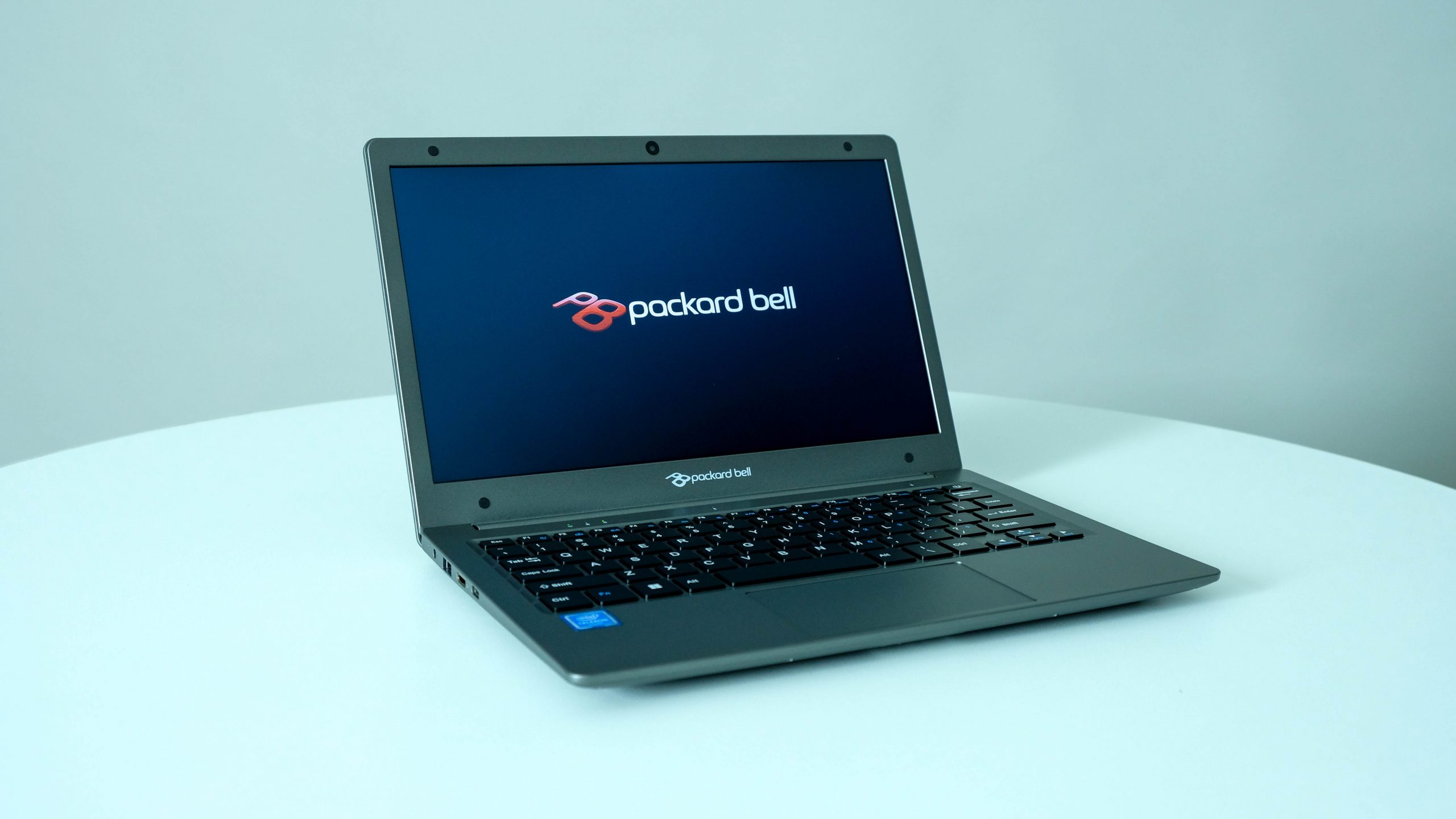
Once upon a time (okay, right around 2008), there was a computer form factor called a netbook. These typically featured screens about ten inches in size, underpowered processors, and were primarily used for browsing the internet. We get a similar impression from the McLaren C1, if only because its 11.6in display is smaller than the 13in and upwards we’re used to dealing with daily. There are other similarities to this retro tech (the netbook all but disappeared in 2012) but these are much more commonplace across notebooks today.
Construction is uniformly plastic and you’ll note some give-in sections of the body. This is most noticeable in the lid — any pressure here will see the TN (twisted nematic) display deform before popping back into place. The answer there is obvious — don’t poke the bloody thing there — but you’ll experience give in a few sections of this notebook. It’s made of plastic. What did you expect?
There’s an impressive set of ports available. A power port, USB-A, mini-HDMI, and USB-C are arrayed down the left edge, with a 3.5mm, USB-A, and even a microSD card slot arranged along the right. The keyboard is close to being full-sized (minus the number pad) and the trackpad is also substantial enough to work with. A mouse peripheral is a good idea but it’s not essential. The working area feels sturdy enough, too, but we’d refrain from using too much pressure. Don’t stand on the McLaren C1 with a stiletto heel, that sort of thing.
Intel (Celeron) inside
The Packard Bell McLaren C1 is priced at around three grand and you can expect the internals to be arranged accordingly. You’re not about to find a unicorn in your garden at this price point. It’d be nice but we live in reality. The key spec here is the Intel Celeron N4020 processor, which drives the 4GB of RAM and 64GB of storage and provides you with the calculations needed to edit Word documents, browse the internet, and fire up some golden oldies from Good Old Games. You’ll get Planescape Torment running but don’t expect anything made this decade to do the same.
In terms of internal features, that’s about as far as it goes for the McLaren C1. WiFi and Bluetooth 5.0 handle connectivity but don’t expect anything as extravagant as an ethernet port. There’s a dinky little webcam above the 1,366 x 768 display that supports Windows Hello but won’t make you look like a contender if you’re attempting to live stream video to YouTube. 0.3 megapixels can only do so much. The panel doesn’t perform badly, a function of its size. If this were a 15in notebook, you’d be wincing at the visible pixels but crammed into an 11.6in screen, it doesn’t look terrible. Again (and with everything mentioned here), price is the major factor and there’s a fair amount of forgiveness in the three grand price tag.
How does it do?
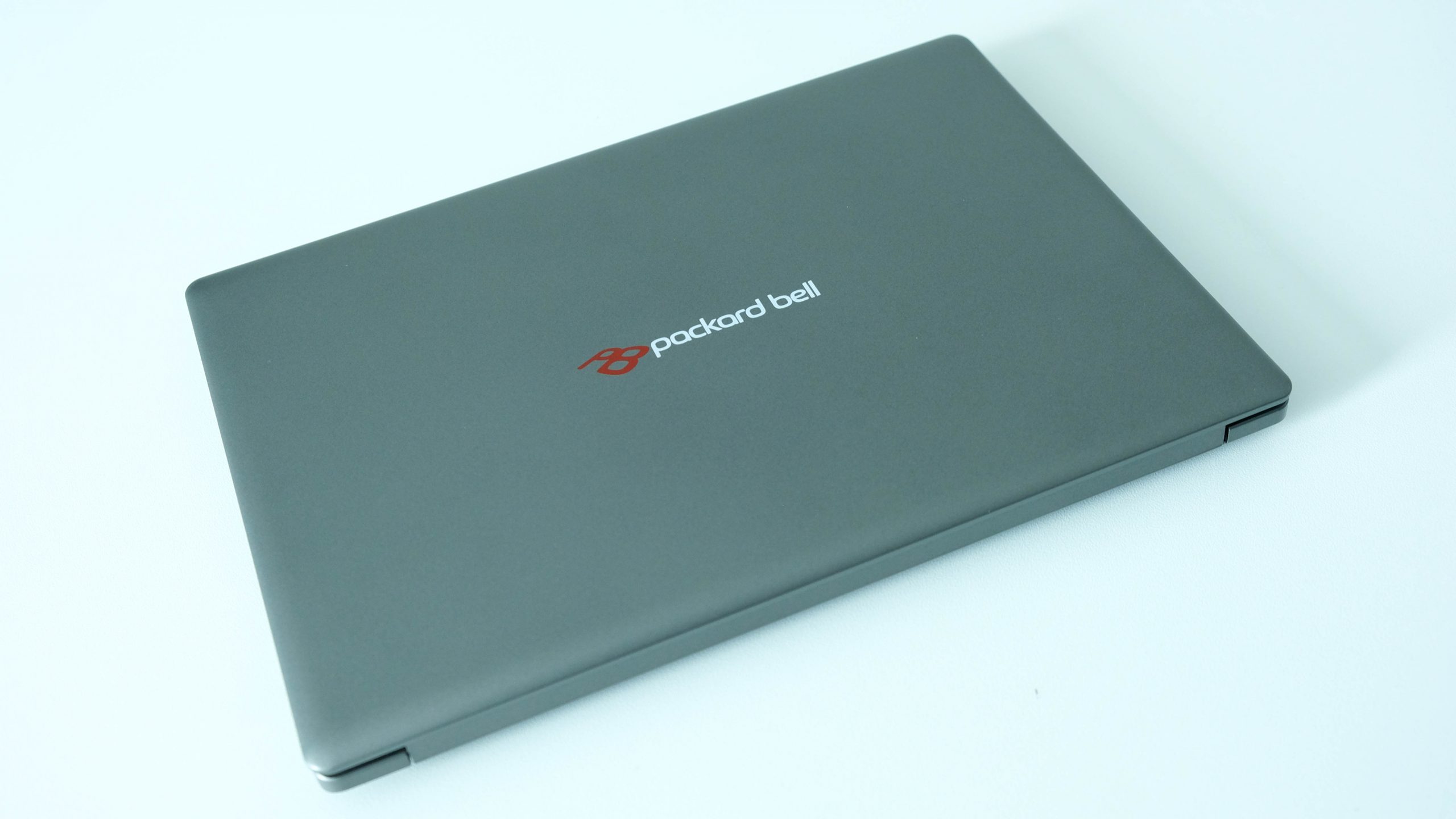
‘Celeron’ is the word that will make network technicians wince but it’s a fact that there are more folks in South Africa in need of a budget notebook than there are users who really want 60fps in their favourite first-person shooter. That said, if you’ve come to this review looking for favourable performance stats, you can stop looking. They’re not here. The McLaren C1 is a sometimes-sluggish machine, a fact that was driven home when we conducted the first round of updates on setting it up. Downloads were neatly done but the installation chugged along slowly enough that we were worried about having bricked it. Turns out, it’s just slow when reorganising the file system.
But everyday tasks, provided you don’t ask the C1 to do much more than one or two at a time, are well within reach. You can crush its spirit effectively enough if you attempt to open that one Excel spreadsheet with origins lost to the mists of time that runs your entire workplace, but sensible usage will see decent results. It would function as an ideal note-taker for a student, a small media consumption device, or for lightweight interaction with the internet.
Its usefulness is further increased by two options. We mentioned above that there’s a microSD slot on the side. Yeah, you can probably convert that to internal storage if you feel like it. We wouldn’t blame you. But there’s also a very easily accessible slot in the underside that allows for a speedy M.2 NVMe solid-state hard drive upgrade. Jumping from 64GB to fifteen times that is a simple enough operation that anyone can do it. While the McLaren C1 is powered off, please.
Packard Bell McLaren C1 verdict
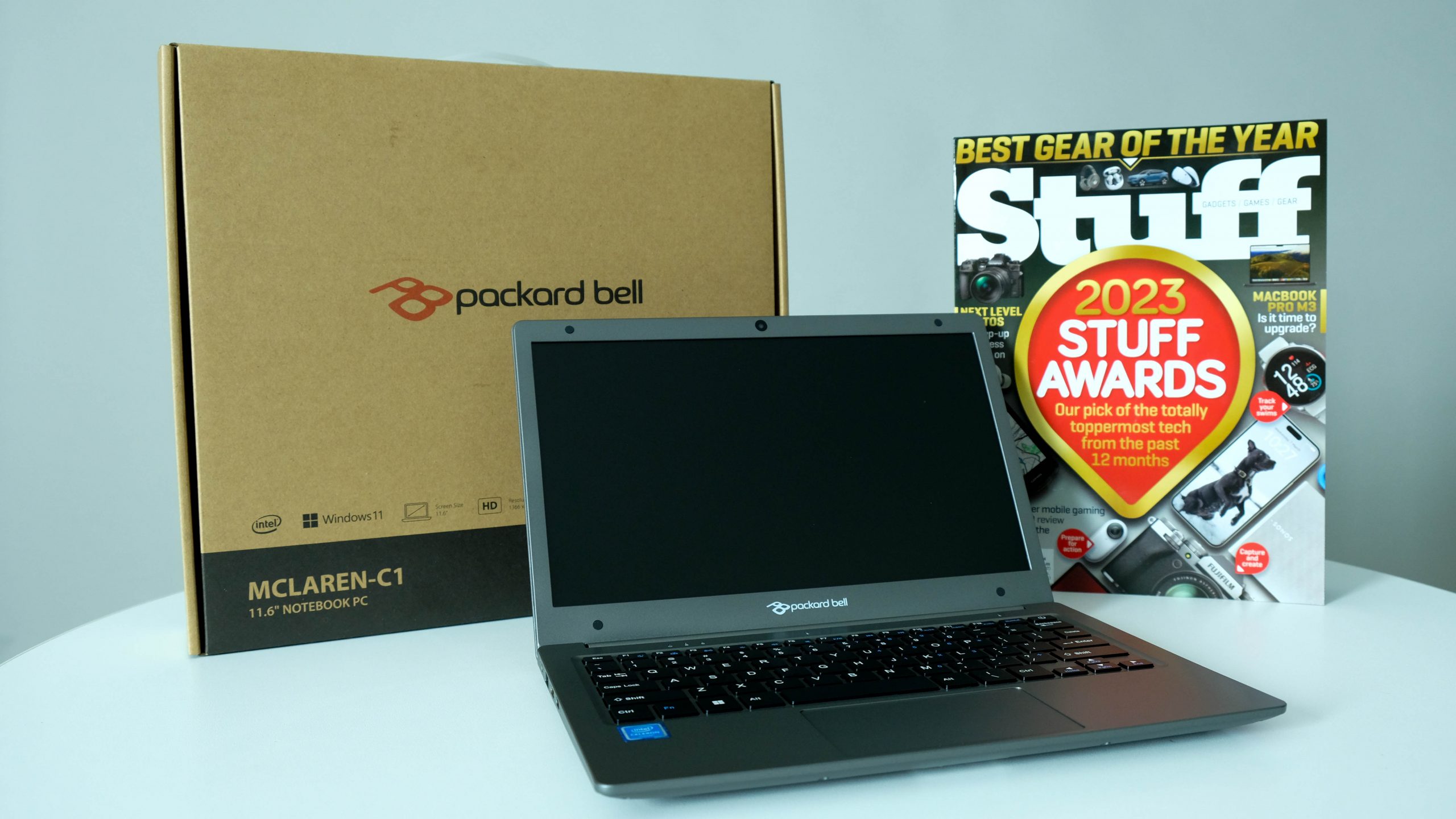
Whether you want the Packard Bell McLaren C1 has more to do with your budget than what it offers. The more you pay for a laptop, the better it will perform. This one hands you the bare minimum of usability but has a couple of option upgrade paths that make it a more effective proposition than when you first take it out of the box. It’s an ideal starter machine and it’ll keep up with minor usage but the second you start requiring performance, you’ll want to upgrade. Not everyone needs performance, however. For those users, the review score is justified. But if you made a funny face when the word ‘Celeron’ first cropped up, you’re probably too advanced for this machine.

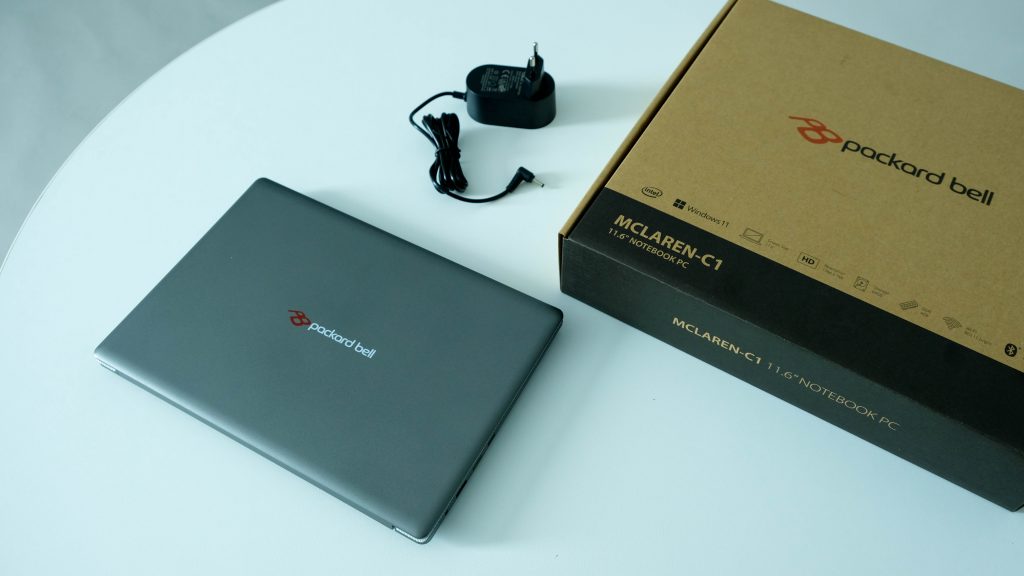
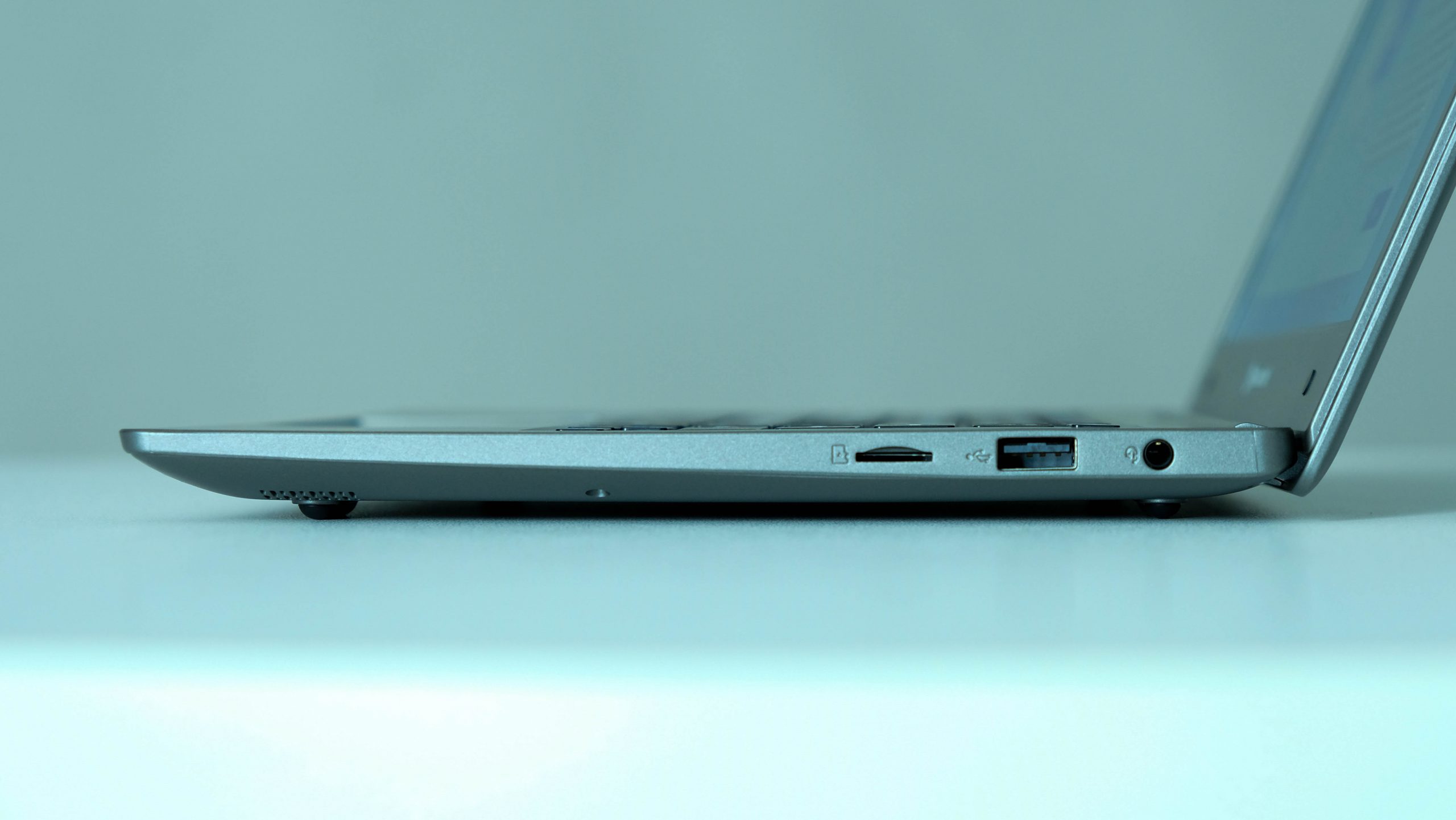

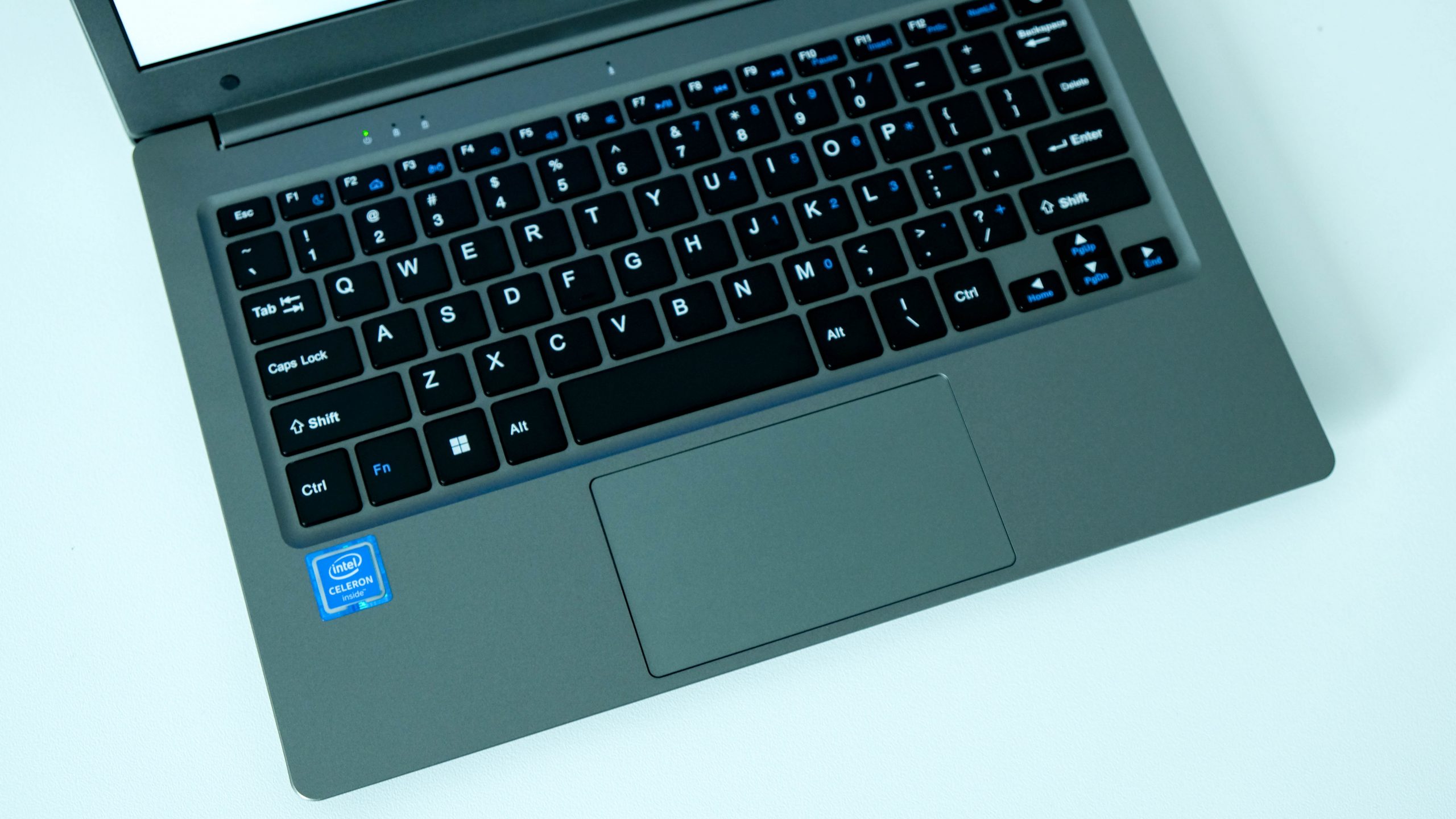
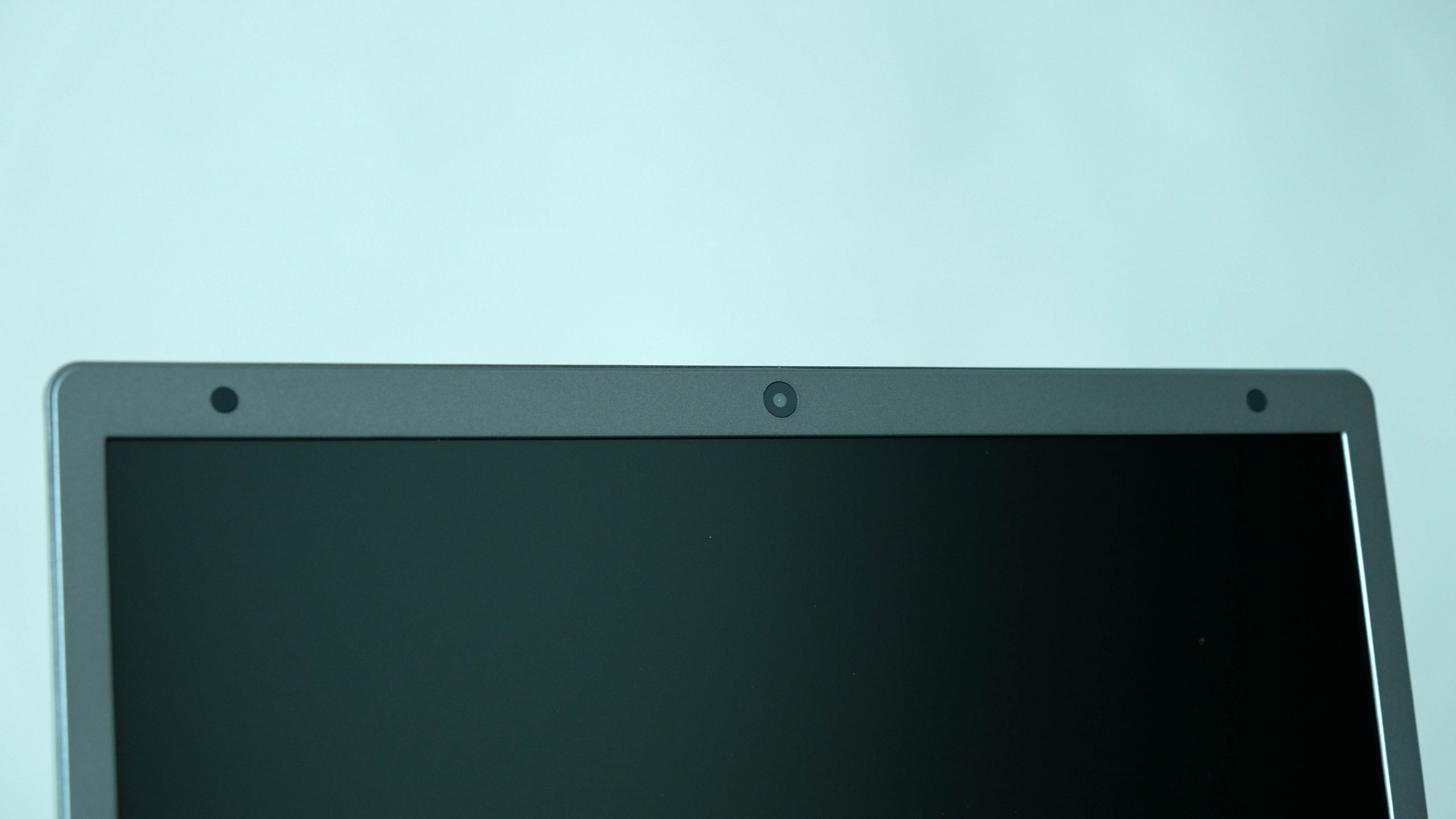



2 Comments
With specs suited to a more than decade-old laptop (Celeron, really?), not sure it deserves the 7 rating. 5 perhaps. A Lenovo 10″ FHD tablet with 4GB Ram and 64GB storage sells for R3,000 too. I’d know what I’d go for. The tablet, of course.
I get it’s bargain basement price is aimed at a certain market, but these kind of el cheapo products do the brands no favours – they may become associated with cheap. Would Apple, say, release a cheap, for Apple, product that compromises quality? No way.
BTW you say it’s hard to find budget laptops. What is “budget” exactly in today’s money and exchange rates?
PS It’s also hard to find a decent mid-range laptop – under R20,000. Slightly better than average features and performance typically cost over R20K in SA. Elsewhere in the world these are available from USD700 (ZAR14,000), even India.
And (some) retailers are selling one and two-year old generation laptops at current year prices. Rather than discounting them. It’s not inflation though but the SA way of business.